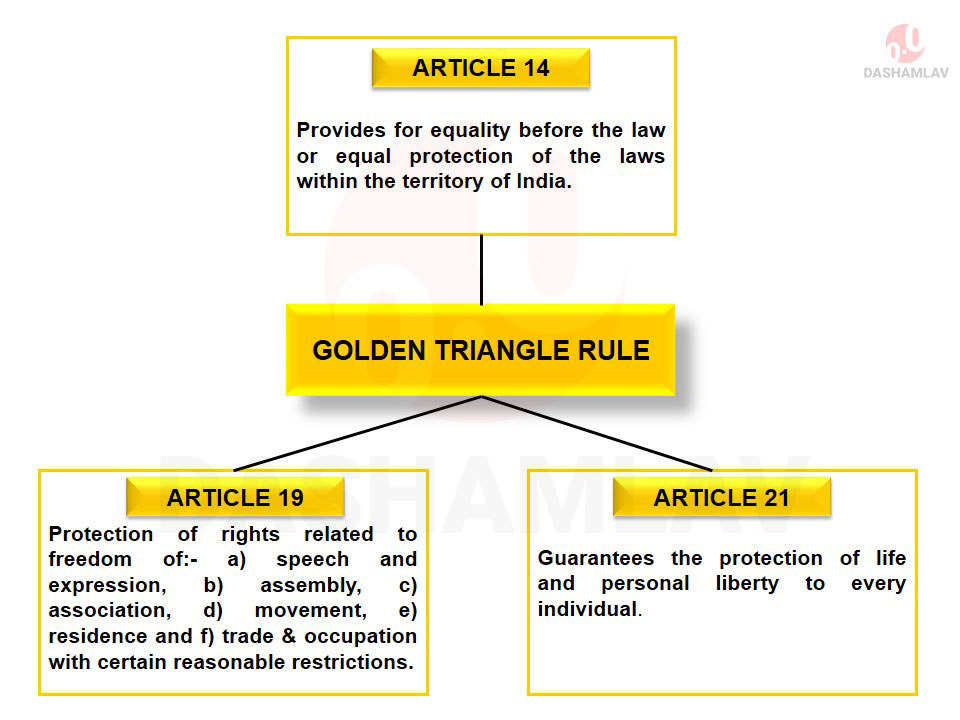Change is the only constant. This is also is true when it comes to interpretation of statutes. While the fundamental core of our legal principles remains universal and classic, their interpretations change and evolve with time. One such example of evolution could be the interpretation of the relationship between Article 14, Article 19 & Article 21 under Part III of the Indian Constitution. These Article are connected to some of the critical fundamental rights which have been laid down under the Indian Constitution. Initially, the judiciary was of the view that all the three article are completely exclusive and separate from each other. However, the landmark case of Maneka Gandhi v. Union of India brought a huge change. It was this case which established the “Golden Triangle” jurisprudence of the Indian Constitution.
What is “Golden Triangle” Jurisprudence of the Indian Constitution?
According to the Golden Triangle rule established by the infamous Maneka Gandhi v. Union of India, Article 14, Article 19 & Article 21 are connected with each other. They are complementary to each other and grants the most basic rights to the Indian citizens and even non-citizens of India in some cases. Right to equality, right to basic freedoms and right to life & personal liberty – all must be read together and collectively interpreted.
As per the Golden Triangle jurisprudence, if someone’s personal liberty has been encroached – it must necessarily pass the test of violation of all the three articles in order to be categorized as “infringement of personal liberty”.

Recent Developments
The expression “right to life and personal liberty” in Article 21 has a very wide scope of interpretation. Thus, from right to privacy judgement to triple talaq and from Sabrimala verdict to the decision on euthanasia, Article 21 has been the subject of discussion and evolving interpretations numerous times in the recent years. The interpretation of Article 21 has led to several legal discussion over the Golden Triangle jurisprudence as well. However, as of now, the jurisprudence stands very much effective.
Use the citation below to add this article to your bibliography
"Golden Triangle Jurisprudence: Article 14, 19 and 21 of Indian Constitution." Dashamlav.com. Web. 6 June 2025. <https://dashamlav.com/golden-triangle-jurisprudence-article-14-19-and-21-of-indian-constitution/>
Dashamlav.com, "Golden Triangle Jurisprudence: Article 14, 19 and 21 of Indian Constitution." Accessed 6 June 2025. https://dashamlav.com/golden-triangle-jurisprudence-article-14-19-and-21-of-indian-constitution/
"Golden Triangle Jurisprudence: Article 14, 19 and 21 of Indian Constitution." (n.d.). Dashamlav.com. Retrieved 6 June 2025 from https://dashamlav.com/golden-triangle-jurisprudence-article-14-19-and-21-of-indian-constitution/
